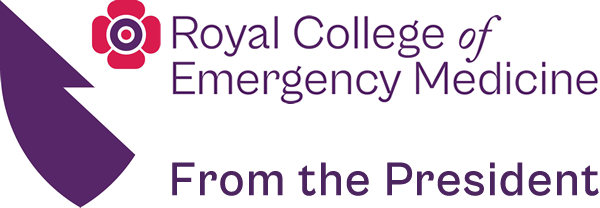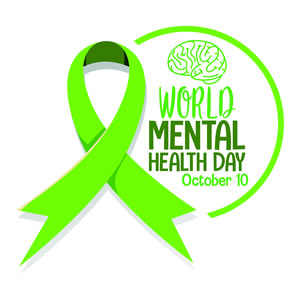October 10th is World Mental Health Day
Have you ever wondered if we sometimes make things worse for patient with mental health problems coming to the ED?
Stigma in the general hospital setting is reported by patients to result in devaluation, social control, avoidance, rejection and failure to act. Perry et al. https://pubmed.ncbi.nlm.nih.gov/32388323/
Careless talk adds to poor attitudes and lack of understanding in our team – “It must be a new moon”, “not again” etc.
Our patients tell us they pick up on this, it may even prevent them coming for help.
What can we do to reduce this?
- Describe the person, not the condition – “24-year-old with recurrent overdose” becomes “Ellie, a student with a background of complex trauma who is in crisis today and has taken an overdose.”
Remember that Ellie will hopefully be back to her studies next week and we may have kept her safe until then.
- Challenge the poor language we hear in our departments.
- Monitor our own thinking and attitudes.
- Even during a brief ED assessment, we can actively listen to patients, choose to show respect, and deliberately voice empathy.
How can structural discrimination and stigma be reduced in EDs?
Adapted fromhttps://pubmed.ncbi.nlm.nih.gov/32388323/
| Ways to reduce stigmatisation at professional level | Ways to reduce stigmatisation at organisational level | |
| STEREOTYPES & LABELS | Discourage inappropriate labelling in staff handovers Anti-stigma training | Avoid group-specific discriminatory policies Avoid lists of problematic patients Avoid ‘special codes’ on notes |
| DEVALUATION | Staff training focus on vulnerable patient groups Audits of care to ensure equity Patient feedback Specific training for triage nurses | Allow longer time to triage patients with complex needs Provide low-stimulus patient waiting areas Focus training curricula on vulnerable patient groups |
| SOCIAL CONTROL | Exposure to patient self-advocacy groups Simulation training Significant incident reviews | Emphasise mediation and de-escalation techniques Minimise use of surveillance and security personnel Minimise use of chemical, physical and legal restraints |
| AVOIDANCE | Staff exposure to those with mental health conditions Staff participation in Schwarz Rounds Encourage reflective practice | Parallel input from physical and mental healthcare teams Employment of experts by experience |
| REJECTION | Training around awareness of diagnostic overshadowing Increase knowledge about physical health inequalities and complex needs | Open access policy for patients Avoid ‘front door’ mechanisms to turn patients away |
| FAILURE TO ACT | Increase knowledge of legal structures eg Mental Capacity Act (UK) Serious case reviews | Improve access pathways to accessory services Assess mental capacity in patients who decline treatment |
The Royal College of Emergency Medicine Mental Health Sub-Committee


